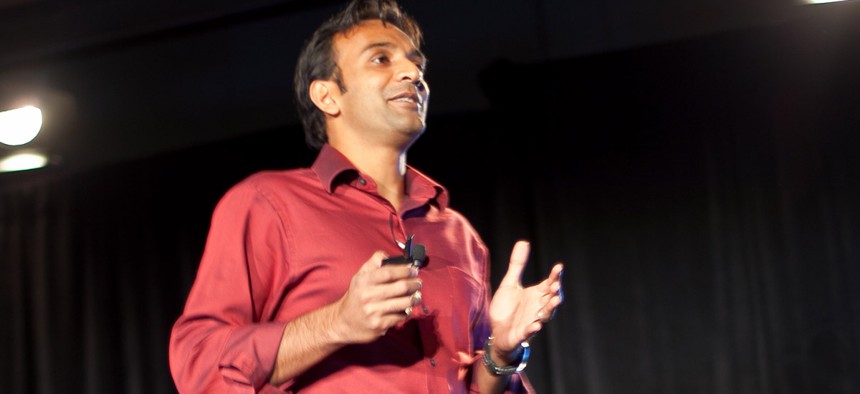How the 'Data Cabinet' Could Break Down Project Barriers

DJ Patil, chief data scientist Flickr user JD Lasica
Chief Data Scientist DJ Patil wants to connect government data professionals so they can help other agencies.
The White House's top data official thinks connecting data professionals to each other could organically grow federal analytics programs across agencies.
That's the principle behind Chief Data Scientist DJ Patil's "data cabinet" concept, a recent effort to organize federal agencies' data professionals, encouraging them to share with others the technical knowledge they've learned internally. Today, that group involves about 24 chief data officers, Patil said during the White House Open Data Summit held Wednesday.
» Get the best federal technology news and ideas delivered right to your inbox. Sign up here.
Some of the biggest barriers to technical projects are cultural, Kris Rowley, the General Services Administration's chief data officer, said during a panel. As his team navigates "the community of CIOs, CTOs, business owners, priority of data sets, opening data sets, getting a handle on our own enterprise data sets ... over the last year we've learned that there is no consistent or magical organizational chart that will solve the problem," he said.
But prominent data professionals are "starting to be organized around the data cabinet," and are planning to document their challenges so they don't have to separately approach the same problems, he said. Rowley estimated he spends less than 5 percent of his time working on technical projects. More of it is spent explaining to others why sharing data in real time and publishing it on an open data platform, could benefit others.
"As more and more of the CDOs come together in working groups to talk about these challenges, we're learning that while GSA does not have weapons systems, we still have some of the same inherent cultural challenges with open data that agencies have doing other business missions."
But as migrating data from one place to the next becomes simpler, it's getting "to the point that it scares people," Rowley said. Data leadership needs to do a better job discussing when data should be secured, and when it should be opened, he added.
And effectively information about data still requires other agencies to be receptive to that input. National Technical Information Services Director Avi Bender, who recently left his post as the Census Bureau's chief technology officer and who has worked closely with the data cabinet, asked audience members from federal agencies to, "when I personally call your agency to have that conversation [about data] that you invite the team over so that we can discuss" new potential projects.





